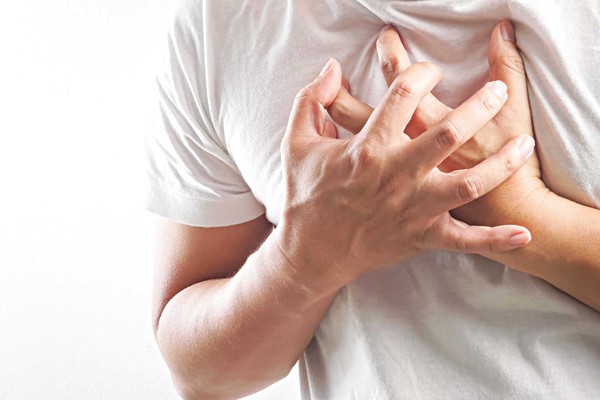Myocardial infarction is a dangerous disease that threatens life. According to statistics, myocardial infarction and stroke are still the number 1 and number 2 causes of death for people worldwide.
Every year, according to the records at the Cardiology Department of Bach Mai Hospital, a large number of cases related to cerebrovascular accidents (strokes) and myocardial infarction are often received. It is worth noting that many patients die or are left with sequelae because they are not treated promptly.
Many people think that myocardial infarction only occurs in middle-aged and elderly people, but in reality, myocardial infarction has been recorded in people aged 30-35.
Causes of myocardial infarction
There are many causes of myocardial infarction, of which an unscientific and unhealthy lifestyle is the main cause of rapid formation of atherosclerotic plaques and leads to myocardial infarction in young people. The main causes in young people that are often encountered include:
– Stress: This prolonged condition causes nervous tension, leading to harm to many organs in the body, including the cardiovascular system.
– Overweight, obesity: Unhealthy eating habits, improper diet, leading to obesity.
– Smoking: This is a bad habit that most young people have, especially men. Smoking is not only harmful to the lungs but also has a very serious impact on other organs, including the cardiovascular system.
– Diabetes;
– Cardiovascular disease;
– Age;
– Family history.

Angina is a classic sign of a heart attack.
Symptoms of myocardial infarction
The most common and typical symptom of myocardial infarction is angina pectoris, a feeling of pressure in the middle of the chest that may radiate to the shoulder, neck, and down the arm, especially the left arm.
The pain is usually more severe and lasts longer than angina, may be accompanied by shortness of breath, sweating, nausea or vomiting, and is relieved slightly or temporarily by rest or nitroglycerin. However, symptoms may be mild; about 20% of patients with acute myocardial infarction are asymptomatic or have vague symptoms that the patient does not recognize, especially in those with diabetes.
Patients often describe their discomfort as indigestion, especially since spontaneous relief may be mistaken for eating too much acidic food or eating improperly.
Some patients experience fainting. Women are more likely to have atypical chest pain. Elderly patients may have more difficulty breathing than ischemic chest pain. In severe anemia, patients often experience pain and feel restless and anxious.
The skin may be pale, cold, and sweaty, central or peripheral cyanosis may appear. The pulse may be weak, and blood pressure may change.
If myocardial infarction is suspected, the patient must be taken to a hospital or specialized facility immediately (do not assume that it is a “stroke” and just scrape the wind at home, wasting precious time for emergency treatment). The doctor will perform the necessary diagnostic methods to determine the disease and carry out emergency treatment.

Regular exercise and weight control help prevent heart attacks.
How to prevent myocardial infarction
At a young age, to prevent myocardial infarction, the first thing to do is to change your lifestyle and living regimen scientifically:
- Do not smoke cigarettes or tobacco.
- Stabilize your weight at a relatively appropriate level
– Reasonable diet and nutrition.
- Exercise and move regularly.
- Keep your mind relaxed, avoid stress and pressure.
- Limit alcohol, stimulants, and fat
- Have regular health check-ups 1-2 times/year to ensure general health and disease screening.
- For young people at risk of high blood pressure, high cholesterol, diabetes, and families with people who have had myocardial infarction, they need to have more frequent health check-ups.
In summary: There are many risk factors for myocardial infarction including: old age, genetics, high blood pressure, high cholesterol, obesity, drinking too much alcohol, stress, lack of exercise, diabetes, kidney disease… If not treated promptly, acute myocardial infarction can cause permanent damage to the heart muscle and death. Therefore, when there are suspicious signs, you need to see a doctor immediately and people with risk factors need to have regular health check-ups to avoid health risks.





